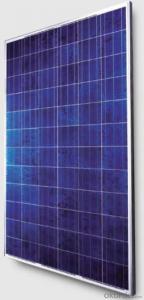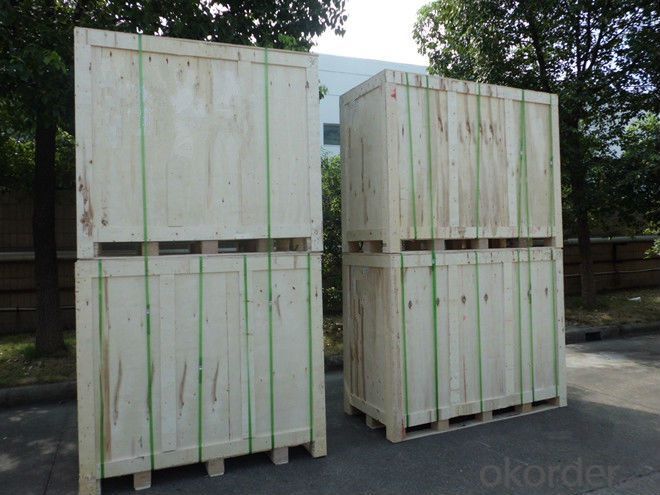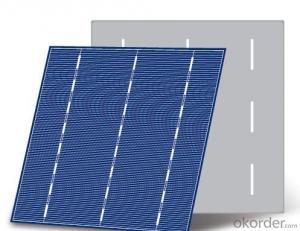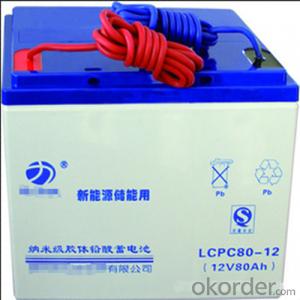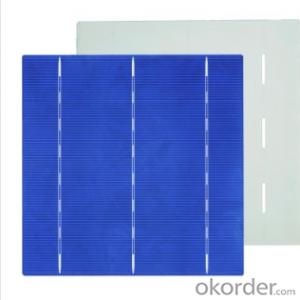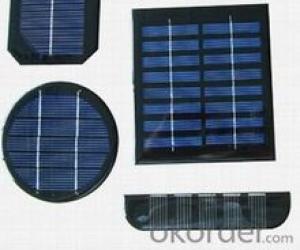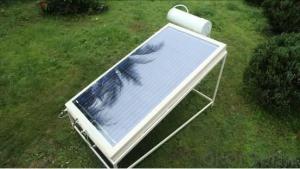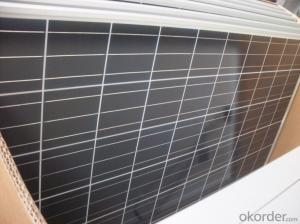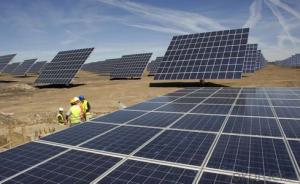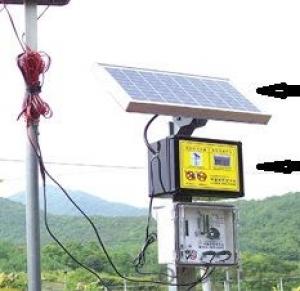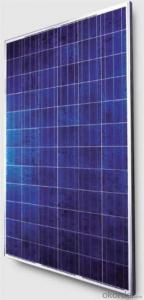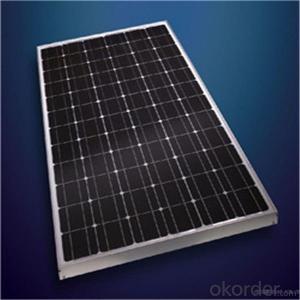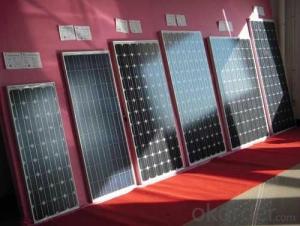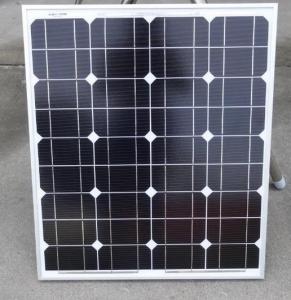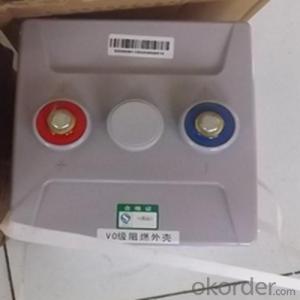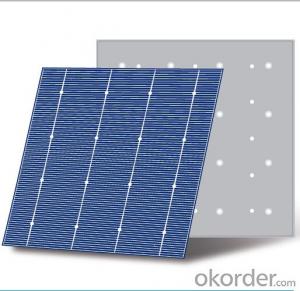3 Generations of Solar Cells - CNBM Polycrystalline Solar Modules Made in China
- Loading Port:
- Shanghai
- Payment Terms:
- TT OR LC
- Min Order Qty:
- 1 pallet
- Supply Capability:
- 100000000 pallet/month
OKorder Service Pledge
OKorder Financial Service
You Might Also Like
CNBM Polycrystalline Solar Modules Made in China
CNBM Solar photovoltaic (PV) Panel is designed for large electrical power requirements. It is the optimal choice for both on-grid and off-grid power systems. CNBM Solar panel offers high performance of power per square foot of solar array. Monocrystalline silicon(c-Si): often made using the Czochralski process. Single-crystal wafer cells tend to be expensive, and because they are cut from cylindrical ingots, do not completely cover a square solar cell module without a substantial waste of refined silicon. Hence most c-Si panels have uncovered gaps at the four corners of the cells.
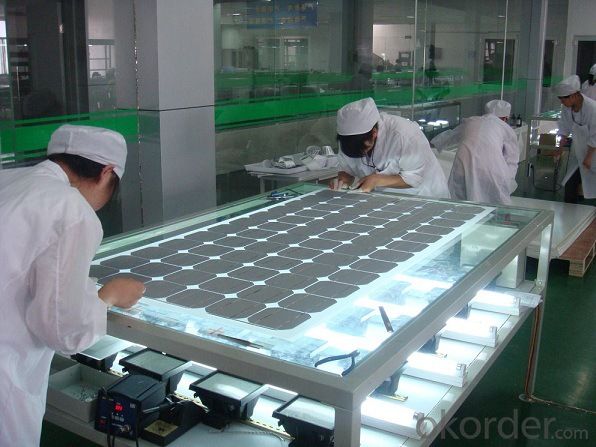
Specifications:
solar panels from 5W--300W, made of TAIWAN MOTECH brand cells,with CO in TAIWAN,Mono and Poly with VDE,IEC,CSA,UL,CE,ISO.
We import solar cells from Taiwan Motech brand, with this CO in taiwan and our CSA certification,we can still sell goods to Anti-dumping areas like USA. Our main products are solar panels, off grid and on grid solar home systems , solar street lighting systems, solar water heating system,solar pump,solar attic fan, solar DC LED lights and solar DC refrigerators.
Certificates : ISO, CE, VDE IEC, MCS, CSA-UL, CEC.
Delivery time: sample 10days, order 25-30days.
Sample: charged.
Payment term: T/T 30% as deposit, 70% before shipment. Or irrevocable L/C at sight.
Trade term: FOB Shenzhen or CIF destination seaport or Airport.
Characteristics:
I.Solar Cell : High efficiency crystalline solar cell. Even if under the weak light, the solar module can produce maximum power output.
II.Tempered glass (toughened glass): Anti-reflecting coating and high transmission rate glass increase the power output and mechanical strength of solar module.
III.EVA and TPT: Using high quality EVA and TPT to prevent destroying and water.
IV.AI frame: Without screw, corner connection. 6 holes on the frame can be installed easily.
V.Junction box: Multi function junction box with water proof.
VI.Long lifetime: ≥25 years; Less power decrease.
VII.Good performance of preventing from atrocious weather such as wind and hails.
VIII.Resisting moisture and etching effectively, not effected by geology.
IX.The certificate issued by international authority: UL, TUV, IEC, VDE, CE.
Quality and Safety
1. Rigorous quality control meets the highest international standards.
2. High-transmissivity low-iron tempered glass, strong aluminium frame.
3. Using UV-resistant silicon.
4. IS09001/14001/CE/TUV/UL
Warranties
1. 10 years limited product warranty
2. 15 years at 90% of the minimal rated power output
3. 25 years at 80% of the minimal rated power output
Technical date :
ITEM NO.: | Poly 156*156 cell ,60pcs . Power range from 230Wp-260Wp | ||||||
Maximum Power(W) | 230 | 235 | 240 | 245 | 250 | 255 | 260 |
Optimum Power Voltage(Vmp) | 29.4 | 29.5 | 29.7 | 30.1 | 30.3 | 30.5 | 30.7 |
Optimum Operatige Current(Imp) | 7.83 | 7.97 | 8.08 | 8.14 | 8.25 | 8.37 | 8.48 |
Open Circuit Voltage(Voc) | 36.7 | 36.8 | 36.9 | 37.1 | 37.3 | 37.5 | 37.7 |
Short Circuit Current(Isc) | 8.52 | 8.59 | 8.62 | 8.65 | 8.69 | 8.73 | 8.78 |
Solar Cell: | 156*156 Poly | ||||||
Number of Cell(pcs) | 6*10 | ||||||
Name of Solar Cells | Polycrystalline Cell | ||||||
Size of Module(mm) | 1650*992*40/45/50 | ||||||
Cable & Connector Type | Pass the TUV Certificate | ||||||
Frame(Material Corners,etc.) | Aluminium-alloy | ||||||
Back sheet | TPT | ||||||
Weight Per Piece(KG) | 19.5KG | ||||||
FF (%) | 70-76% | ||||||
Junction Box Type | Pass the TUV Certificate | ||||||
Tolerance Wattage(e.g.+/-5%) | ±3%, or 0-3% | ||||||
Front Glass Thickness(mm) | 3.2 | ||||||
Temperature Coefficients of Isc(%) | +0.04 | ||||||
Temperature Coefficients of Voc(%) | -0.38 | ||||||
Temperature Coefficients of Pm(%) | -0.47 | ||||||
Temperature Coefficients of Im(%) | +0.04 | ||||||
Temperature Coefficients of Vm(%) | -0.38 | ||||||
Temperature Range | -40°C to +85°C | ||||||
Surface Maximum Load Capacity | 5400Pa | ||||||
Allowable Hail Load | 23m/s ,7.53g | ||||||
Bypass Diode Rating(A) | 12 | ||||||
Warranty | 90% of 10 years, 80% of 25 years. | ||||||
Standard Test Conditions | AM1.5 1000W/ 25 +/-2°C | ||||||
Packing | carton or pallet | ||||||
1*20' | 14 Pallets / 316pcs | ||||||
1*40'STD | 25 Pallets / 700pcs | ||||||
FAQ:
We have organized several common questions for our clients,may help you sincerely:
1. What’s price per watt?
A: It’s depends on the quantity, delivery date and payment terms of the order. We can talk further about the detail price issue. Our products is high quality with lower price level.
2. Can you tell me the parameter of your solar panels?
We have different series of cells with different power output, both from c-si to a-si. Please take our specification sheet for your reference.
3. How do you pack your products?
We have rich experience on how to pack the panels to make sure the safety on shipment when it arrives at the destination.
4. Can you do OEM for us?
Yes, we can.
5. How long can we receive the product after purchase?
In the purchase of product within three working days, We will arrange the factory delivery as soon as possible. The perfect time of receiving is related to the state and position of customers. Commonly 7 to 10 working days can be served.
- Q: Can solar cells be used to power medical devices or implants?
- Yes, solar cells can be used to power medical devices or implants. They can provide a renewable and sustainable source of energy for various medical applications, including implants such as pacemakers, insulin pumps, and hearing aids. By utilizing solar energy, these devices can operate without relying on traditional batteries or frequent replacements, offering patients greater convenience and reducing the need for invasive procedures.
- Q: What is the role of combiners in solar cell systems?
- The role of combiners in solar cell systems is to combine or merge the electrical outputs from multiple solar panels into a single output. This allows for increased efficiency and power generation by effectively utilizing the energy produced by each individual panel.
- Q: What is a polycrystalline solar cell?
- A polycrystalline solar cell is a type of solar cell made from multiple small silicon crystals, unlike a monocrystalline solar cell which is made from a single crystal. This manufacturing process makes polycrystalline solar cells less expensive to produce, although they typically have slightly lower efficiency compared to monocrystalline solar cells.
- Q: Monocrystalline silicon and polycrystalline silicon cell in the appearance of what is the difference?
- For the user, monocrystalline silicon cells and polysilicon batteries are not much different. Monocrystalline silicon and polycrystalline silicon cell life and stability are very good.
- Q: Can solar cells be used for indoor lighting?
- Yes, solar cells can be used for indoor lighting. However, it is important to note that solar cells require sunlight to generate electricity. To use solar cells for indoor lighting, additional equipment such as batteries or capacitors are needed to store the energy generated during daylight hours and power the lights when sunlight is not available.
- Q: Can solar cells be used in cloudy or rainy weather?
- Yes, solar cells can still be used in cloudy or rainy weather, although their efficiency will be reduced. While solar cells generate less electricity under such conditions due to reduced sunlight intensity, they can still produce some power. Additionally, advancements in solar technology have improved the ability of solar cells to capture diffused and indirect sunlight, making them more viable in less optimal weather conditions.
- Q: How do solar cells affect the grid?
- Solar cells affect the grid by generating electricity from sunlight and feeding it into the grid, reducing the reliance on traditional power sources. They contribute to a more sustainable and decentralized energy system, helping to reduce greenhouse gas emissions and dependence on fossil fuels. However, their intermittent nature can pose challenges for grid stability and require additional infrastructure investments for integration.
- Q: What is the environmental impact of solar cells?
- Solar cells have a relatively low environmental impact compared to other forms of energy generation. While their production does require the extraction and processing of raw materials, such as silicon and metals, the overall energy and resource requirements are relatively low. Furthermore, solar cells generate electricity without emitting greenhouse gases or other pollutants during operation, reducing air and water pollution. Although their end-of-life disposal can pose some environmental challenges, proper recycling and waste management can minimize these impacts. Overall, the environmental benefits of solar cells, including reduced carbon emissions and resource conservation, outweigh their limited environmental footprint.
- Q: Solar water heater plate can be directly converted into electrical energy?
- Solar panels: solar panels are the core of the solar power system and the highest value part of the solar power generation system, which transforms the sun's radiant power into electricity or stores it in a battery or drives the load The quality and cost of solar panels will directly determine the quality and cost of the entire system;
- Q: Can solar cells be used for powering agricultural equipment?
- Yes, solar cells can be used for powering agricultural equipment. Solar energy can be harnessed through photovoltaic (PV) panels and used to power various agricultural machinery and equipment such as pumps, irrigation systems, electric fences, and machinery used for crop processing. This provides a sustainable and environmentally friendly alternative to traditional fuel-based power sources, reducing operating costs and minimizing carbon emissions in the agricultural sector.
Send your message to us
3 Generations of Solar Cells - CNBM Polycrystalline Solar Modules Made in China
- Loading Port:
- Shanghai
- Payment Terms:
- TT OR LC
- Min Order Qty:
- 1 pallet
- Supply Capability:
- 100000000 pallet/month
OKorder Service Pledge
OKorder Financial Service
Similar products
Hot products
Hot Searches
Related keywords
